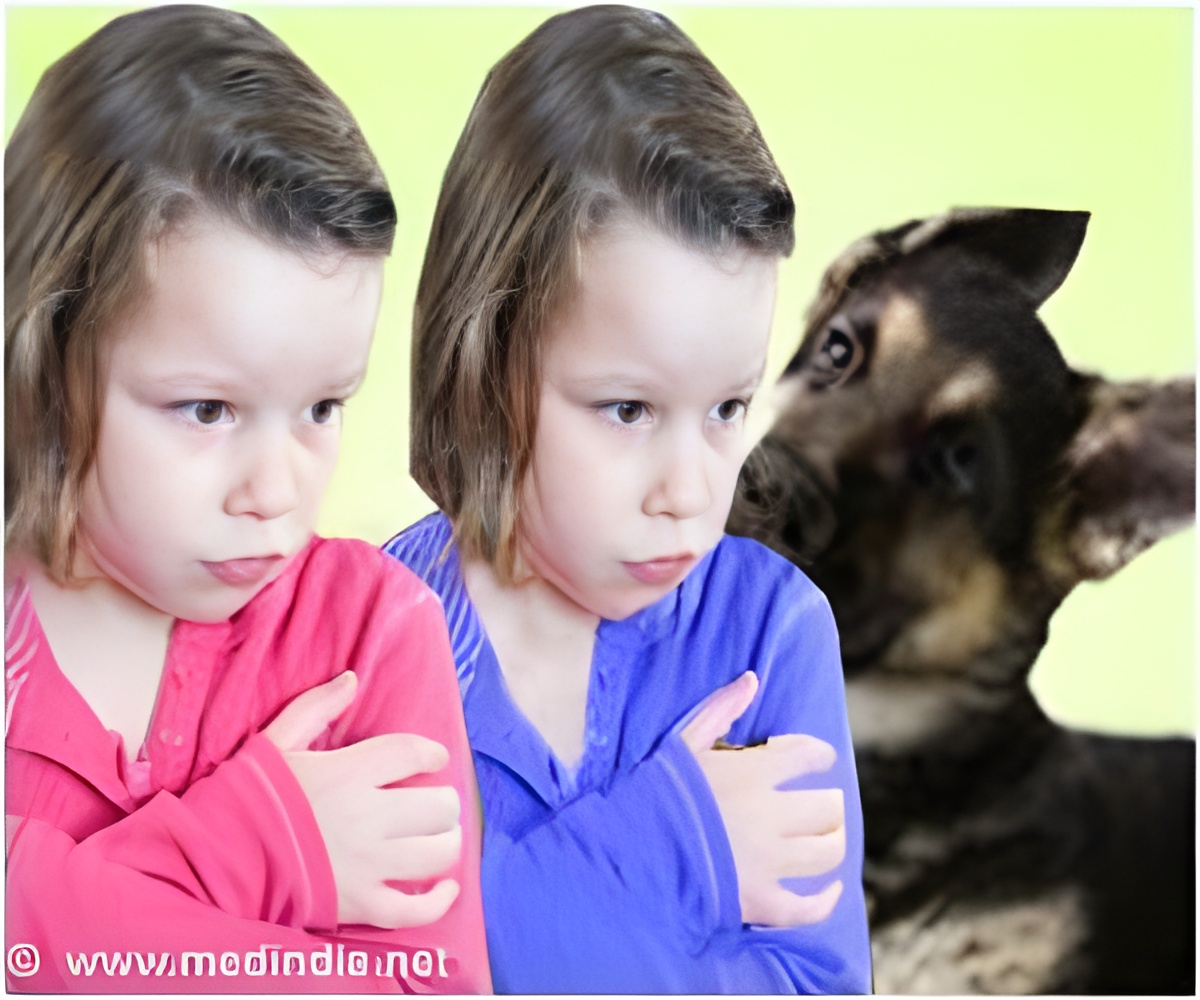Identical twins have their own individual smells, even if they live in the same house and eat the same food.

Identical twins arise when a single fertilized egg (zygote) splits in two. The correct medical term to describe identical twinning is ‘monozygotic’. Fraternal twins are the result of two eggs fertilized by two separate sperm, hence referred to as ‘dizygotic twins’.
Identical twins have the same DNA, to a large extent, unlike fraternal twins who are only as genetically similar as any regular pair of siblings. Thus DNA tests cannot tell identical twins apart. (However recent studies claim that identical twins can differ genetically)
Each pair of twins participating in the study lived in the same environment and ate the same food. Identical twins participating in the study were genetically identical. Two sets of identical twins and two sets of fraternal twins and plenty of samples from unrelated children were in the same room. This was done with the same scientist present so that background odours would be minimized.
10 German Shepherds, well trained for identifying suspects by scent were put through a total of 120 scent line-ups. A canine would sniff a swab and then seek out a matching scent from seven possibilities. Each dog goes through 12 tests.
Dogs distinguished identical twins from one another without fail. This was in spite of the fact that each twin lived in the same place and ate the same food as their counterpart.
The youngest twins who participated in the study were only five years old. This meant even people who have the same DNA and the same surroundings begin to diverge at a very early age. The exact reason why this happens is unclear. Identical twins, in spite of having the same DNA have individual smells.
Source: Dogs Discriminate Identical Twins; LudvikPinc et al; PloS one 2011.
Source-Medindia











